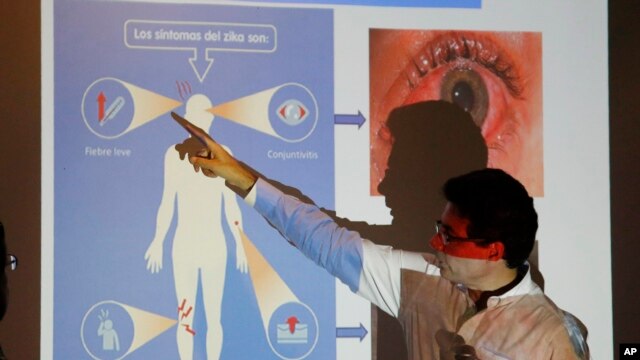
U.S. President Barack Obama has called for immediate development of tests, vaccines and treatments for the Zika virus.
The Zika virus has infected people in more than 20 countries.
Spread of zika virus
Just this week, the U.S. Centers for Disease Control (CDC) confirmed that two people have tested positive for the virus in the states of Arkansas and Virginia. Health officials said that both became infected recently after traveling to countries where Zika virus transmission is ongoing.
Health official also reported that a baby recently born in Hawaii was infected with the virus in the mother’s womb. The mother had emigrated from Brazil early in her pregnancy.
In Puerto Rico, health officials are reporting 18 cases of the virus, according to Reuters. The virus was first reported in the U.S. territory last December.
In Europe, a hospital said a Danish tourist who had traveled to South and Central America has tested positive for Zika virus. This came after British health officials confirmed five cases of returning travelers infected with the virus.
Where did the virus come from?
The CDC said that Brazil reported its first case of Zika virus in May 2015. Since then, the virus has spread by mosquitos and has caused infections in many Brazilian states and other countries in Latin America.

The World Health Organization (WHO) said the Zika virus could be linked to 4,000 suspected cases of microcephaly in Brazil. Microcephaly is when babies are born with extremely small heads. It causes severe brain damage.
After the outbreak, Brazilian officials sent 200,000 troops to homes to deliver information on how to get rid of mosquitos. In areas that will be used for upcoming carnival celebrations and this year's Olympics, city workers sprayed chemicals to kill mosquitoes and their eggs.
Officials in El Salvador, Colombia and Jamaica have recommended women postpone getting pregnant. Women’s health advocates, however, said that advice was not appropriate.

Monica Roa is vice president of strategy for Women's Link Worldwide, a women's rights group. She said it is “incredibly naïve for a government to ask women to postpone getting pregnant in a context such as Colombia where more than 50 percent of pregnancies are unplanned and across the region where sexual violence is prevalent."
WHO Director General Margaret Chan said Zika might spread to all countries in the Americas except for Canada and Chile.
"The explosive spread of Zika virus to new geographical areas, with little population immunity, is another cause for concern, especially given the possible link between infection during pregnancy and babies born with small heads."
Symptoms and advice on the virus
Symptoms for Zika include mild fever, rash, joint pain and red eyes. These symptoms can last from a few days to about a week.
However, an estimated 80 percent of people infected with the virus have no symptoms at all. This makes it difficult for pregnant women to know whether they have been infected. Researchers and health experts warn that there are many unknowns about the Zika virus.
The World Health Organization said there are two effective ways to stop the virus from spreading:
- reduce the areas where mosquitos breed
- and protect people from getting bit by mosquitoes by using insect repellants, nets, screens and clothing that covers as much of the body as possible.
The CDC suggests that pregnant women avoid traveling to 14 countries and territories in the Caribbean and Latin America affected by the virus. These areas include Puerto Rico, Martinique, Haiti, El Salvador, Guatemala, Honduras, Panama, Brazil, Colombia, French Guyana, Paraguay, Suriname, Venezuela and Mexico.
The agency also warns that women who have recently traveled to these places during their pregnancy be examined and monitored for the virus.
I’m Anna Matteo.
Anna Matteo adapted this story from VOA News reports. Hai Do was the editor.
Words in This Story
postpone – v. to put off to a later time
repellant – n. serving or tending to drive away or ward off —often used in combination <a mosquito-repellent spray>
naïve – adj. deficient in worldly wisdom or informed judgment
prevalent – adj. common or widespread

